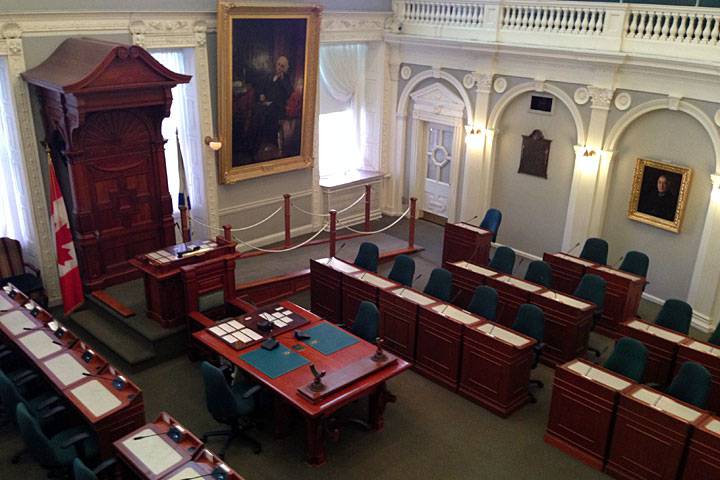Nova Scotia’s premier says he’s confident his government’s cap and trade plan will get the green light from Ottawa, adding there will be no further legislation around the scheme during the upcoming fall sitting of the provincial legislature.

Provinces that wish to maintain or establish a carbon pricing system had to submit an outline of their plan to the federal government by Sept. 1.
“We don’t need any further legislation – ours is done,” Stephen McNeil said in an interview last week. “We worked with them (Ottawa) all the way through and we don’t expect there to be an issue.”
READ: Nova Scotians won’t see carbon pricing plan before it goes to feds: McNeil
However, McNeil again cautioned that Nova Scotia wouldn’t be moving ahead if Ottawa doesn’t impose its program on provinces that don’t meet its benchmarks.
The federal plan calls for a $10-per-tonne price on carbon starting in 2018. That would rise by $10 per tonne each year until reaching $50 per tonne in 2022.
Alberta pulled out of the climate plan last week following a court decision striking down the approval of the contentious Trans Mountain pipeline expansion. Ontario has also balked, joining Saskatchewan in a court challenge. P.E.I. and New Brunswick tabled carbon reduction plans that don’t include a new price on carbon.
“Our solution is a Nova Scotia solution,” said McNeil.
“It also will only be implemented if the federal government brings the backstop in for those who don’t have their own plan. If there are those who can’t meet the federal benchmark . . . then we won’t be implementing our changes. We’ll continue down the path we have.”
The legislature opens for its fall session Thursday with a throne speech to be read by Lt.-Gov. Arthur LeBlanc.

Get breaking National news
McNeil said the speech would highlight the province’s “great success” in growing its population and would point out that the economy is “turning in the right direction.”
WATCH: McNeil government urged to do more for health care in Nova Scotia

While he didn’t reveal specific details, McNeil said the speech would set the tone for provincial budgets to be tabled in 2019 and 2020. He said his Liberal government would continue its mantra of fiscal responsibility in order to spend in priority areas, such as education and health care.
But the premier offered little on pressing issues facing health care in particular, saying only that “we will continue to invest in health care.”
Both opposition leaders left no doubt their parties would make sure that persistent problems dogging health care, such as doctor shortages and emergency room closures, would be “front and centre” during the legislative session.
Karla MacFarlane, the interim Progressive Conservative leader, said her party has planned a rally for 7 p.m. Wednesday at the Fairbanks Centre in Dartmouth.
“We plan to send a very clear message to Nova Scotians that we are still standing up for them with regards to health care,” said MacFarlane.
“The speech from the throne should have a definite laser focus on fixing health care. This premier has had five years to fix it and we are still at a point of chaos.”
MacFarlane said the Tories will highlight doctor shortages and call for a more comprehensive plan to address the situation. She said the issue has currently “fallen on the shoulders of municipalities” with many forming their own doctor recruitment and retention groups.
On the legislative front, MacFarlane said she will introduce a bill to ban conversion therapy – a practice that attempts to change people’s sexual orientation.
“I’m hoping from what I’m hearing that all parties may be on side,” she said.
WATCH: Premier Stephen McNeil looks back at 2017

NDP Leader Gary Burrill said his party would stress what he called the “government’s betrayal of industrial Cape Breton” when it announced a plan in June to close hospitals in New Waterford and North Sydney “without a shred of local conversation or a shred of integrity.”
Burrill said the New Democrats would also continue to push for improvements and supports for nursing homes, especially when it comes to staffing and budget cuts.
“People can expect there will be a number of pieces of legislation on serious reform in the long-term care sector that will come forward from our party,” he said.
Meanwhile, McNeil was also vague when asked about the Liberals legislative agenda for the sitting.
He did say there would be changes to the Motor Vehicle Act that would modernize what he called outdated legislation, but he gave no details.
“The Business (Department) will also have a number of pieces coming through, most of which will put us in a position to prepare our budget that will come down next year,” he said.







Comments